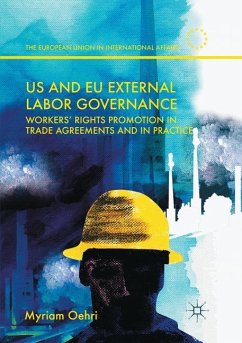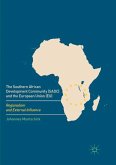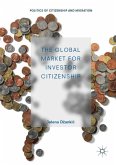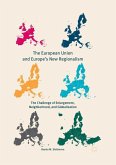This book provides a timely and in-depth analysis of how two major trade powers, the United States of America (US) and the European Union (EU), contribute to a socio-political dimension of globalization. Myriam Oehri documents US and EU labor standards promotion in Mexico, Morocco, and the Dominican Republic, drawing on an analysis of bilateral and regional trade agreements (NAALC, US-Morocco FTA, CAFTA-DR, EU-Mexico GA, EU-Morocco AA, and EU-CARIFORUM EPA) as well as extensive field research. The case studies reveal that for the advancement of labor norms, both punitive enforcement and cooperative engagement mechanisms are established in relevant agreements. In practice, the latter are more comprehensively used than the former, irrespective of diverse power relations between the US and the EU on the one hand and the three partner states on the other. The book will be of interest to advanced students and scholars in the fields of EU and US studies, foreign, trade, and social policy, regional integration, and international labor studies. It will also be of relevance to practitioners active in the international promotion of labor standards.
Bitte wählen Sie Ihr Anliegen aus.
Rechnungen
Retourenschein anfordern
Bestellstatus
Storno








